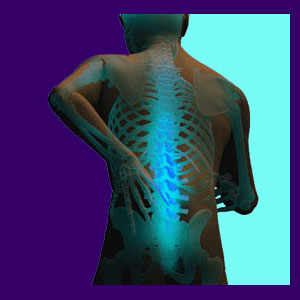
Tension myositis syndrome diagnosis, also called TMS diagnosis, is the science of identifying the condition named by Dr. John Sarno to describe his theory of ischemia as the source of pain driven by a psychosomatic process.
TMS, now also known as tension myoneural syndrome, is not actively diagnosed by most traditional medical providers, since the very ideology involved goes against the structural model of back pain. Many patients are left to research the condition and make the diagnosis themselves, while others seek care from the few TMS doctors in practice. However, times are certainly changing fast in the healthcare sector. Mindbody medicine is finally earning a place in the mainstream, with a variety of care practices now being available, including many traditionally-trained medical doctors and some complementary therapists. While true knowledge therapy is a long way from being easily and universally available at this stage, medical practitioners have certainly demonstrated that they are are willing to learn more about diagnosing the exhaustive range of psychoemotional health issues.
This essay provides insight into the diagnostic process for TMS.
What is Tension Myositis Syndrome Diagnosis?
TMS is a condition which is thought to be virtually universal in the adult population. However, the duration, severity and anatomical location of symptoms vary incredibly. TMS is an expression of the mindbody process, which influences all facets of health and disease.
According to Dr. Sarno, some people are simply more disposed towards severe TMS based on their personality type and life circumstances. Sarno rarely gives much thought to the physical factors involved in the condition once a diagnosis has been made, since he teaches that the only way to defeat the pain is by focusing instead on purely psychoemotional concerns and not wasting time or resources treating any physical expression.
Dr. Sarno makes his diagnostic pronouncements through the process of physical exam and the analysis of a detailed patient history, combined with a patient interview which includes invasive probing about the nature of the patient’s personality type. Sarno has never set up definitive criteria for diagnosis of TMS and since the condition is of mindbody origin, this is a very good thing. Psychogenic issues are not easily categorized, since they are highly individual and case-specific.
TMS Diagnosis Problems
Tension myositis syndrome is a difficult diagnosis to achieve, since there are still simply too few care providers who actively recognize and treat the condition. The vast majority of TMS pain is misdiagnosed as coming from the usual suspect back pain scapegoats, which explains why classic treatment for dorsal symptoms is often such a dismal failure. After all, if the pain is being blamed on an anatomical condition, when all along it is actually the result of the mindbody connection, then there truly is no hope of enacting a cure. This is the primary reason why so many patients suffer year after year without finding relief despite many attempts at treatment.
Dr. Sarno talks of encountering many patients who have been in treatment for years or even decades. These people have been led astray and placed under the impression that there is something wrong with their spines to cause their agony. Sarno speaks of their liberation from pain once they can discover the real reason why their treatments have disappointed them time after time. He describes how easily applied knowledge therapy principles enacted cures which seemed impossible for them to achieve from traditional medical care.
Tension Myositis Syndrome Diagnosis Factsheet
Many patients write to me asking for a local TMS doctor’s contact information. If there is a care provider in their area, I always send the data. However, there are not always enough TMS doctors to go around and many large regions of the country and world do not have any whatsoever. In these cases, the patient is forced to travel to see a caregiver, enlist in an online treatment program or consider self-diagnosis and self-treatment using the many knowledge therapy books.
Although it may seem strange, most patients who do everything themselves can achieve the same results as those who spend time and money seeking care from a professional TMS practitioner. TMS self-treatment is always worth a try, since there are no risks to utilizing the knowledge therapy approach and professional TMS treatment can be incredibly costly.
Back Pain > Tension Myositis Syndrome > Tension Myositis Syndrome Diagnosis




